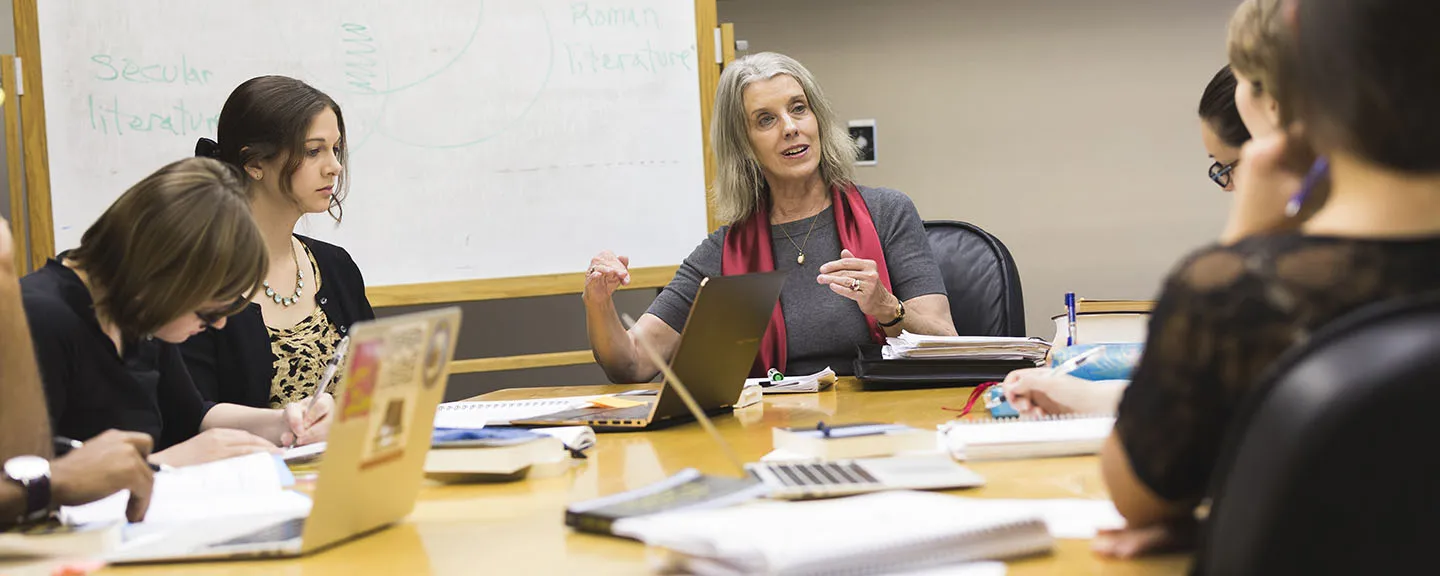- Home
- >
- APU Articles
- >
- News Article
How Liberal Arts Courses Support Your Education
January 26, 2021 | Written By Heather Nelson

In fact, a survey by the Association of American Colleges and Universities found that 93 percent of employers value candidates’ abilities to think critically, communicate clearly, and solve complex problems more than their undergraduate majors. Additionally, the survey found that four out of five employers believe students should have a broad knowledge of the liberal arts and sciences.
For many students, a well-rounded education includes the humanities. Regardless of major, there’s importance in seeing how all careers—including those in the fields of science, technology, engineering, and mathematics (STEM)—go hand-in-hand with liberal arts.
The Value of Liberal Arts Courses
Studying the humanities in college is valuable to all students, both those pursuing traditional liberal arts degrees and those in the sciences. According to Bradley McCoy, PhD, a professor in the Department of Mathematics, Physics, and Statistics at Azusa Pacific University, it’s important for students in all fields to take liberal arts courses.
“Science is great at answering questions about how things work,” McCoy said, “However, science is completely incapable of addressing questions of meaning, value, or purpose.”
Integrating liberal arts courses into all students’ coursework can help them feel comfortable with both how a problem can be solved and how to solve it in a way that will be most beneficial to society. When students in data-heavy fields (like science or math) expose themselves to the critical thinking and communication skills needed in humanities courses, they expand their ability to bring higher-level skills to the work they’ll do after graduation.
How the Liberal Arts Support STEM Degrees
Prospective students and parents are increasingly focused on choosing a major that will lead to a good career. While pursuing a course of study with high job prospects is important, the perception that STEM studies are more likely to lead to careers is false.
“I think the perceived tension between STEM and liberal arts is mostly an illusion,” said McCoy. “Professionals in STEM and the liberal arts typically have great respect for each other.”
According to McCoy, science is liberal arts. “The liberal arts are fundamentally about having the freedom to explore interesting questions,” he explained. “This is exactly what we do in STEM; we are just focused on scientific questions.”
By pursuing a STEM degree at a university steeped in faith and the liberal arts, students can go beyond the technical knowledge of a class to the philosophical questions about what is good, what is true, and, according to McCoy, “how we can use this knowledge in an ethical way to make a difference for the Kingdom of God.”
Using Liberal Arts Courses to Widen Professional Prospects
Employers consistently say that the technical knowledge students have can get them their first job—but to be successful, liberal arts skills are essential.
The transferable skills gained through a liberal arts education are commonly referred to as soft skills. Soft skills include strong written and oral communication, a sense of social responsibility, and the ability to collaborate with a team.
For example, if a scientist or engineer has great ideas but can’t communicate them clearly, their work may not move forward. And in most fields, work gets done in collaboration with a team.
Most importantly, critical thinking amassed in liberal arts courses is essential to whichever professional field one pursues. The ability to look at complex problems, consider all the angles, and then creatively figure out how to solve them is valuable in all fields.
Including liberal arts in your education not only broadens your knowledge, it can also help you develop important critical thinking skills that you can use throughout your career—and in any field you pursue.
Are you ready to explore a degree that includes liberal arts studies and expands your professional skills and prospects? Learn more about degrees at APU and begin your own successful journey by starting your undergraduate application today.